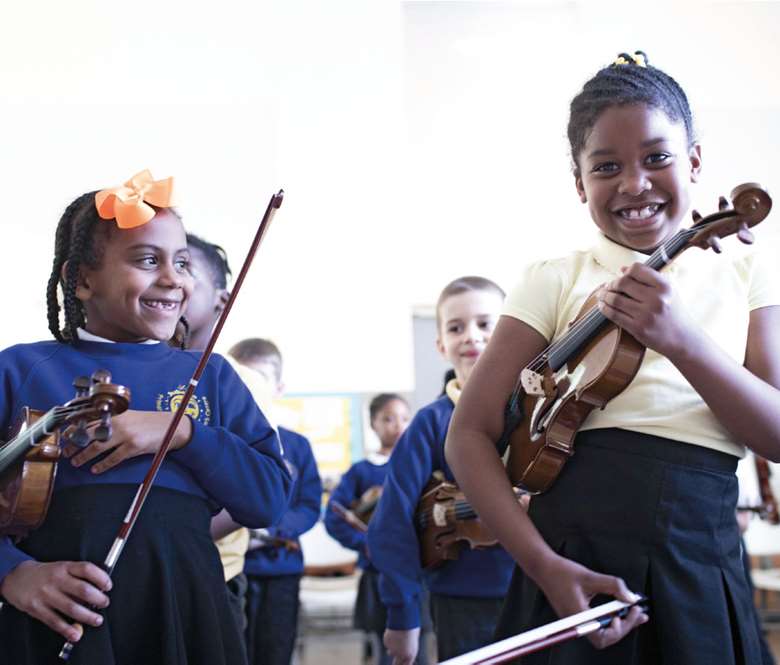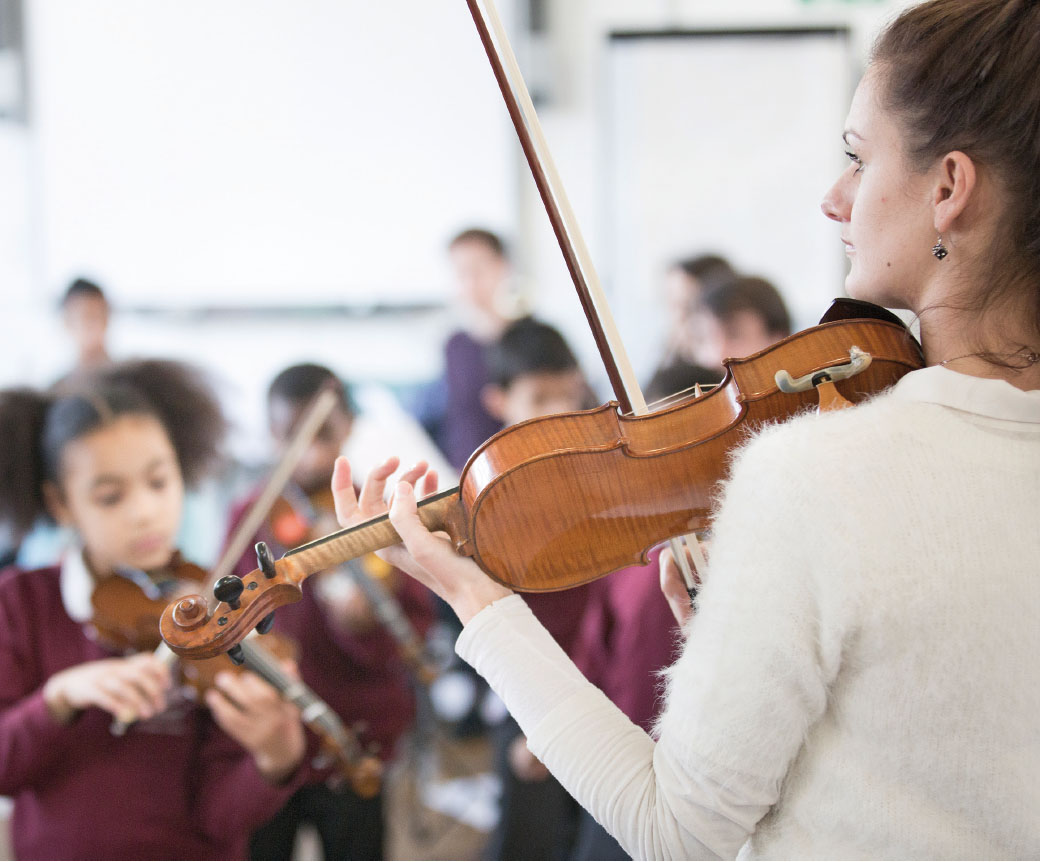Masters of music: London Music Masters
Rebecca Pizzey
Thursday, August 1, 2019
Rebecca Pizzey learns about a new PGCEi – with a difference

Benjamin Ealovega
The purpose of London Music Masters (LMM) doesn't so much centre around equality as equity. Founded in 2007 by Victoria Robey and Itzhak Rashkovsky, the privately-funded charity provides mentoring, financial support, and educational opportunities to talented musicians who are at a disadvantage.
‘I think the equity can be a hard thing to get your head around, because we're minded to think “level playing field” – that's the kind of language often used,’ says Rob Adediran, executive director for LMM. Rather than giving everyone the same opportunities, LMM strives to provide the high-quality music education that everyone has a right to receive.
This year, LMM is continuing to shake up music education with the September launch of its new PGCEi qualification, which specialises in Group Instrument Learning. The course has been developed in partnership with Birmingham City University, which is validating the course as well as providing some of the tuition.
‘It's something we're very excited about,’ Adediran says. ‘We've been thinking about it and planning it for years. This is actually its second iteration, and this time around we've got the right partner and the right model. It emerged out of our observation that weren't enough – or any – high-quality training opportunities for musicians who were going to teach groups of children.’
All together
It's the group teaching element that is core to this qualification. Often, talented musicians will emerge from their further education programmes not necessarily having received the appropriate support or the training for educating groups – despite most children receiving music education through group tuition and whole-class ensemble teaching.
The answer, for LMM, was to address the fault line, and to do so in partnership with music education hubs. Adediran says of the collaboration, ‘They are the employers of the peripatetic music teachers, and they are doing incredible work up and down the country. But they're hugely stretched: funding for music education has dropped significantly since the introduction of the National Plan – and that's just in cash terms; we're not even taking into account inflation or other things that erode the value of the pound.’
Adediran tells me that rather than finger pointing at hubs for not being able to provide the training for teachers to support groups, LMM is trying to add to the wealth of work they already do: ‘We're bringing in something that supports music hubs, something to which they can direct their musicians to, so we can collectively look at raising the quality of the workforce.’
Going back to equity, the majority of musicians know that their chances of being able to afford a new qualification are slim. Having just graduated from universities and conservatoires and spending a significant amount of money on honing their craft, it is far from useful to then offer them further expensive education – particularly as musicians from any economic background can produce high-quality music. To ensure that those talented musicians are still able to access this Level 7 qualification, LMM are offering bursaries of up to 85% off the £4,000 course fee.
Adediran says: ‘The course is heavily subsidised, thanks to our fantastic group of funders. We're a charity, so everything we do is subsidised or free – and this is about ensuring that any musician with the passion and the desire to work really hard to become a great teacher will have our support.’
Not only that, but on graduating, rather than being ejected into the world of teaching and wished luck, new teachers will have access to a lifelong CPD programme. ‘This is where we're trying to work with our hub partners and other outfits that are doing great things. I think that being able to tell the graduates that they're not going to be isolated, but become part of this vibrant network of talented and passionate musicians – who care about the next generation of learners – is a great thing.’
Onto the content of the course, Adediran tells me that one of the key modules is called From Expert to Educator. ‘This is a really important one, because it values the fact that musicians coming onto this course are experts in their form. But how do you take your expertise and translate it into a context that works in education?’
Every student will also have a mentor, who will themselves be an experienced teacher. They will observe their mentors in a classroom and then feedback what they've seen, while also being helped in their own teaching environments. Adediran says: ‘We will go and spend time with them in their own context, giving them feedback on their delivery and helping them to really contextualise their learning.
‘This is very much something we're developing for music hubs, and the graduates who come out of this don't come and work for LMM; they very much go back into their communities and work there, and they're supported to be effective in their own schools.’
While the inaugural cohort of students will have been accepted onto the programme by the time this goes to press, there is promise of a second year from 2020. And if that wasn't enough to entice, the website has been given a big thumbs up by LMM teacher training ambassador Nicola Benedetti, who says: ‘This PGCEi will give teachers the support they need to thrive in the classroom.’

© Benjamin Ealovega
The new qualification gives musicians the tools to teach groups of children

